Gov’t: COVID-19 vaccines safe
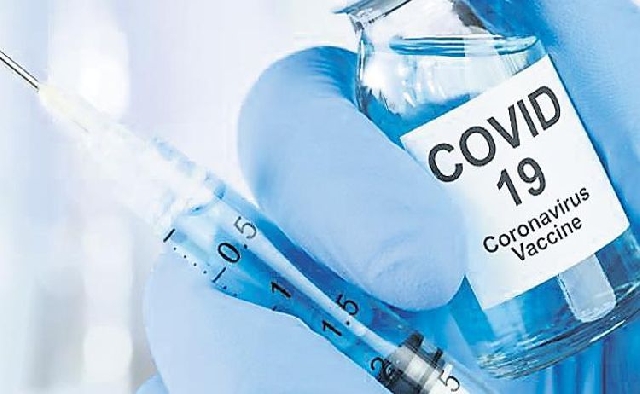 The vaccine is yet to reach most parts of the developing world
The vaccine is yet to reach most parts of the developing world
The government of Ghana has said the procured COVID-19 vaccines are efficacious and completely protective against severe cases of the virus in the country.
President Nana Addo Dankwa Akufo-Addo, during his 23rd update to the nation on measures put in place by his government to curb further spread of COVID-19, indicated that the country is expected to receive its first set of vaccines by the end of the first quarter of 2021.
Officially announcing a roll-out plan for the vaccines at a stakeholder engagement forum on Friday, 19 February 2021, the Minister of Information-designate, Mr Kojo Oppong Nkrumah, said: “As you have followed in recent weeks during the President’s addresses, Ghana has been working on a vaccination roll-out programme and has been working to determine which vaccines, when, what quantities, what are the segments of the population, what are the cost to countries who receive the vaccines among others. Today, we are in a position where we can formally inform the nation of where we are on this journey”.
Mr Oppong Nkrumah stressed the importance of such engagements in order to demystify the long-held misconception by some sceptics that the vaccines are harmful and should not be administered.
Also in attendance at the forum were the Minister-designate of Health, Mr Kwaku Agyeman-Manu; Director-General of the Ghana Health Service (GHS) Dr Patrick Kuma-Aboagye, the Programme Manager of the Expanded Programme on Immunisation of the GHS, Dr Kwame Amponsa-Achiano and an Immunologist and Research Fellow at the West Africa Centre for Cell Biology of Infectious Pathogens, University of Ghana, Dr Yaw Bediako.
The Minister of Health-designate, who acknowledged the timeliness of the vaccine procurement because, he noted, they will help prevent further infections and help eradicate the virus totally.
“The only thing that we need to add is the prevention mechanism which is vaccination. The world had rushed through to develop vaccines, which is quite unusual because of scientific reasons but because of the urgency and emergency situation, the pandemic that is afflicting the whole world, they managed to get us something to use. WHO will always tell you for universal health coverage, no one needs to be left behind and, therefore, Ghana will not be left behind.
“A lot of things have been done, we have had stakeholder engagements with a lot of groups and we will continue to hold same to try to see how all of us will buy into the vaccination programme,” he stated.
Dr Kuma-Aboagye underscored the effectiveness of the procured vaccines, particularly in countries that have administered them to their citizens.
The Programme Manager, Expanded Programme on Immunisation (EPI), Ghana Health Service, Dr Kwame Amponsa-Achiano, also disclosed that the Ghana Health Service (GHS) will deploy about 12, 500 vaccinators for the upcoming nationwide COVID-19 vaccination exercise.
“Ultimately, the vision is to vaccinate the entire population, but for the now, the initial target based on the safety profile of the vaccines, we’re targeting approximately 20 million persons and these persons are health workers as based on segmentation, persons with underlining health conditions.
“Security personnel, other essential service providers, persons above 60years, students of second and tertiary institutions, teachers at all levels, specialised groups, the Executive, Legislature Judiciary and MDAs, the media and of course the rest of the population will receive the COVID-19 vaccines.”
He noted that the GHS will use a mixed bag of delivery strategies for the vaccination exercise.
“Fixed clinics, already existing hospitals, health centres, clinics, both public and private and also conduct outreach services depending on the area, because there’ll be temporary mobile clinics where people go vaccinate and move to the next spot.
“We’re looking at Greater Accra Metro, the Greater Kumasi Metro and of cause Western will be the next,” Dr Amponsa-Achiano stated.
He also indicated that the exercise will require enormous Human Resources.
“We need a lot of vaccinators for this exercise, so we have planned to train approximately 12,500 vaccinators and nearly 40.000 volunteers with a little over 2,000 team supervisors. These will be used for both round 1 and round 2 of the campaign. Remember the vaccines are given in two doses.
“We have planned a training for vaccination teams to assure quality,” the Programme Manager, Expanded Programme on Immunisation at the GHS added.
Source: Classfmonline.com
Trending News

Ex-workers accuse Heath Goldfields of repeatedly shifting payment timelines
14:02
Traditional spiritual overlords demand national recognition
14:02
Violence is the only way to settle issues in Parliament-Minority
13:46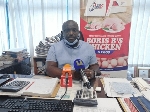
Dr. Boris Baidoo announces approved farm and retail egg prices
13:04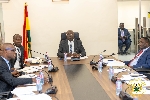
Finance Minister orders strict enforcement of 2024 audit report recommendations
15:02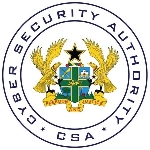
Sam George commends Cyber Security Authority for successful strike against cyber fraud
12:46
Cocobod board chair calls for stronger security collaboration to tackle Cocoa and farm input smuggling
12:52
Western Region intensifies fight against illegal mining; Changfang machines targeted for total removal
13:31
West Africa on alert as ECOWAS announces state of emergency
13:01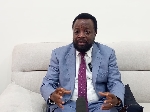
‘This is the real picture’:Dr. Kpikpi says 2024 WASSCE reflects long-standing decline
14:06




